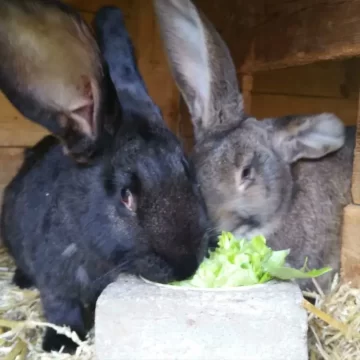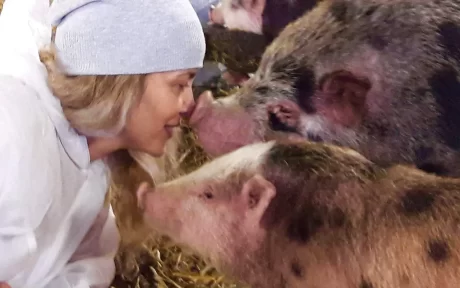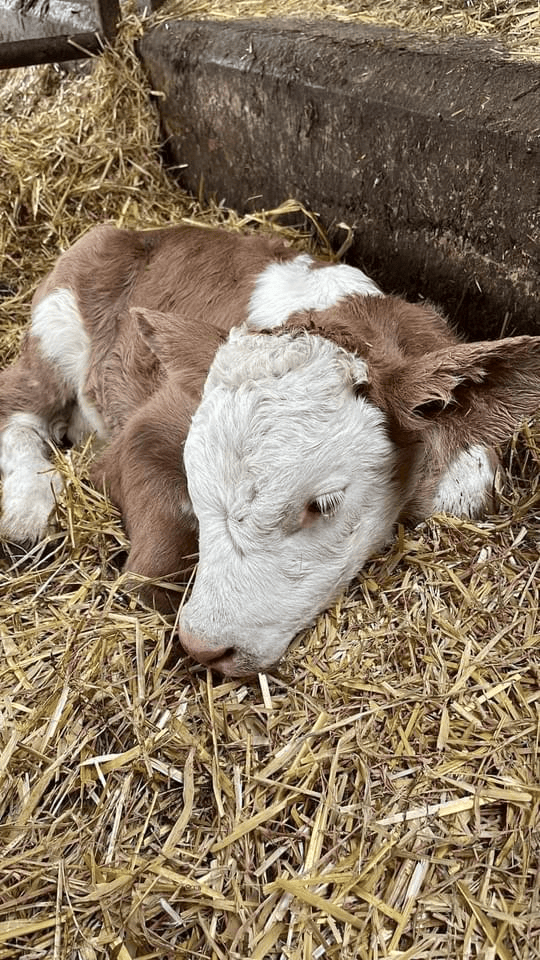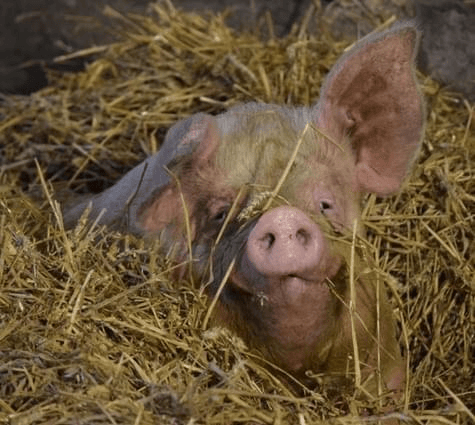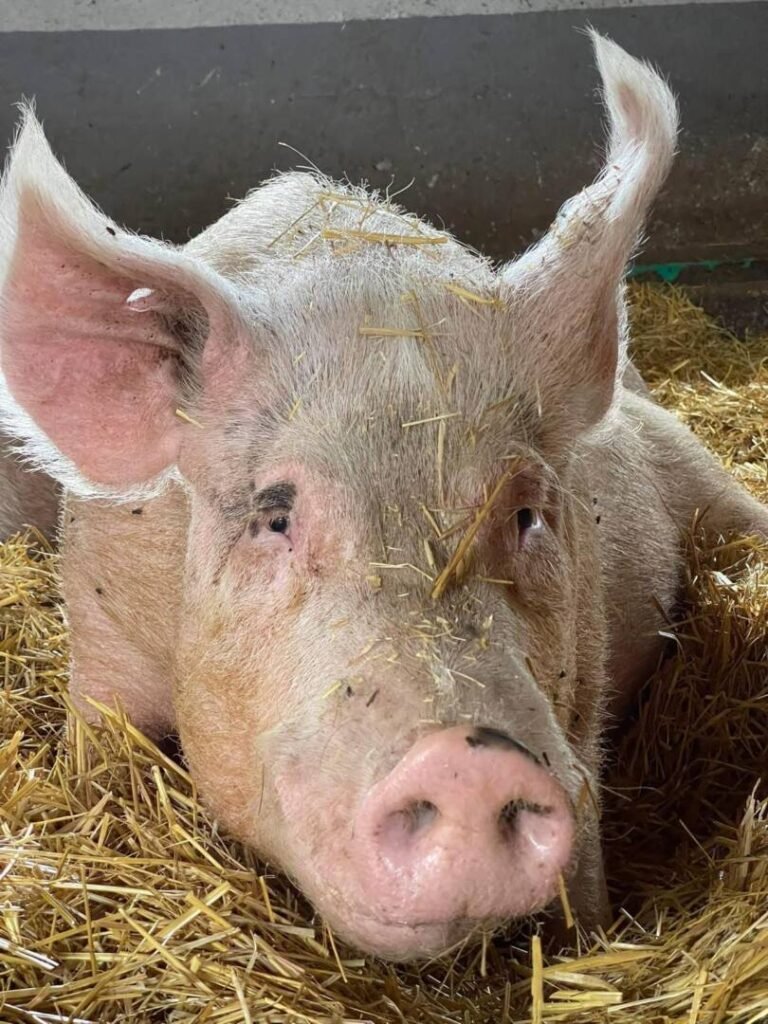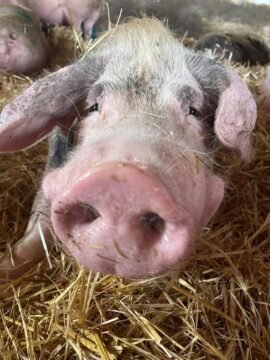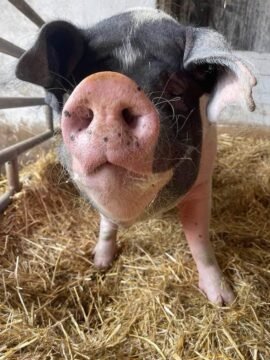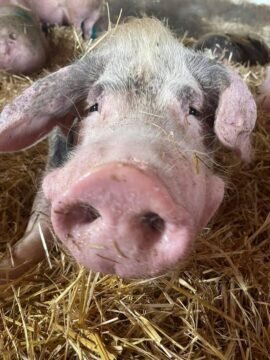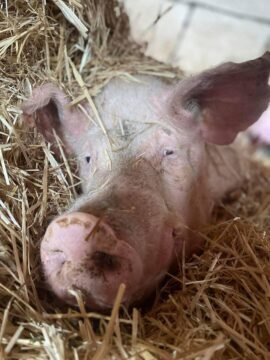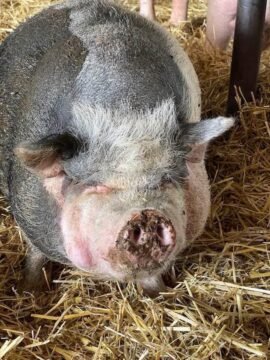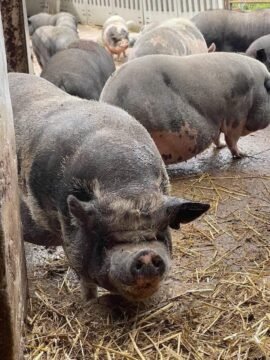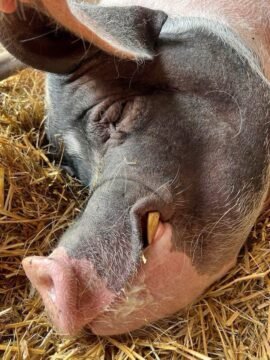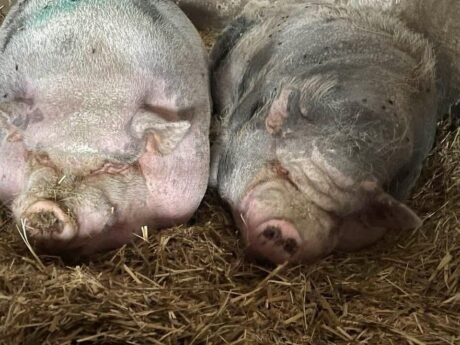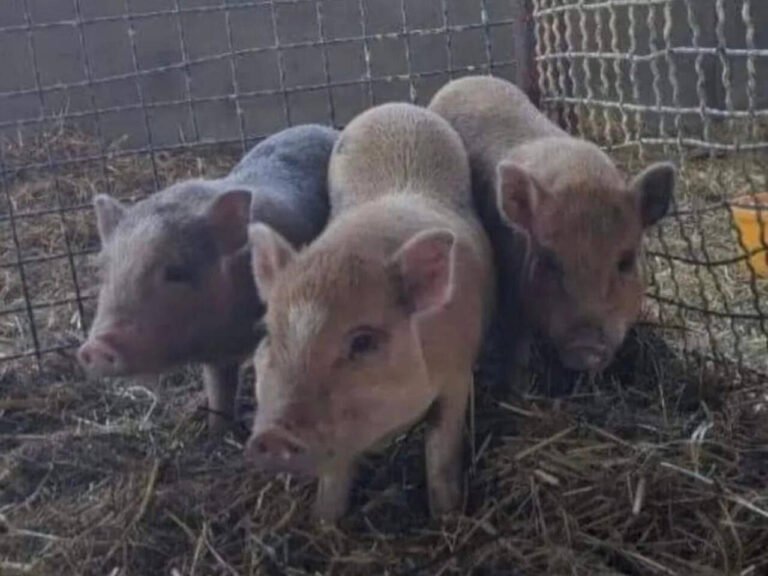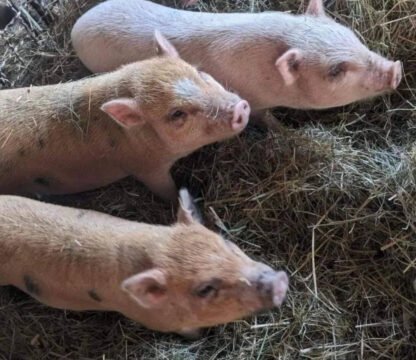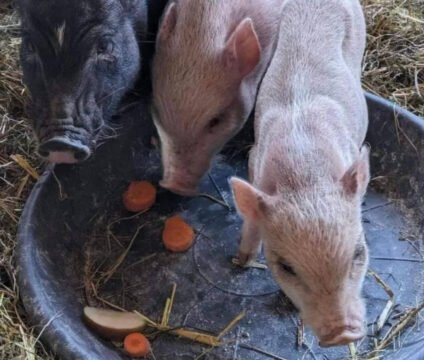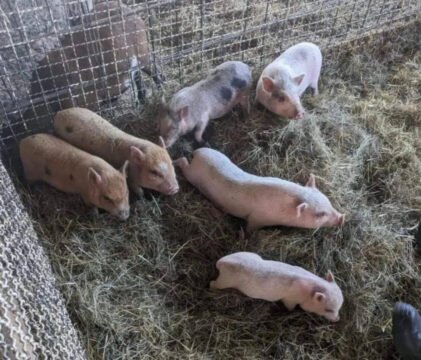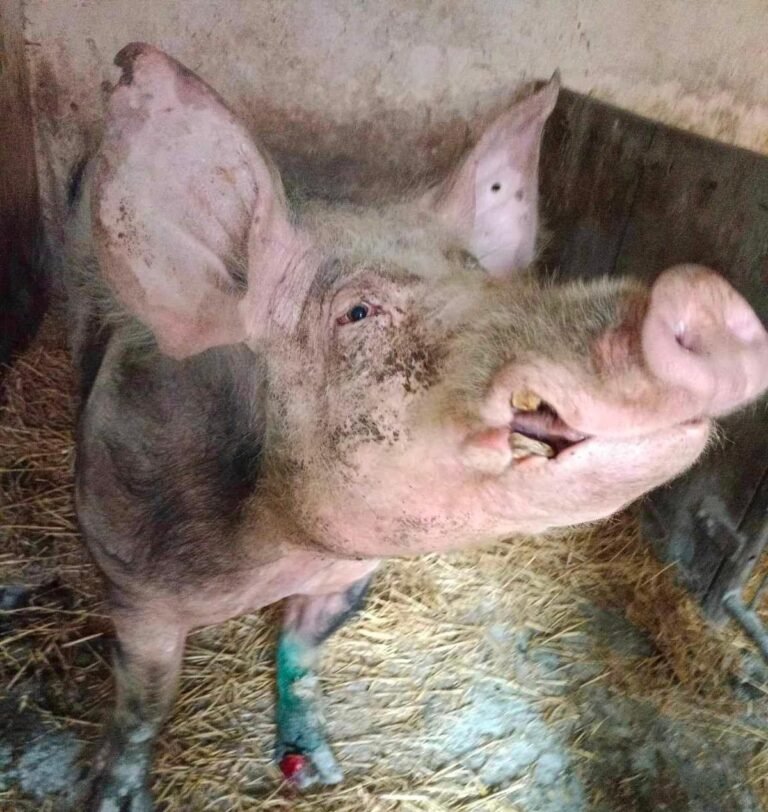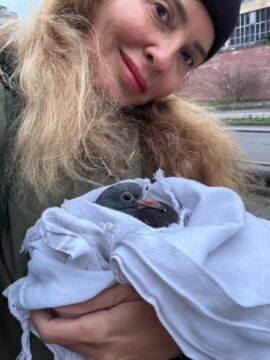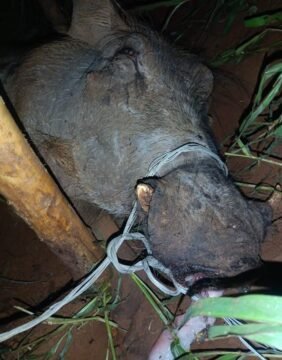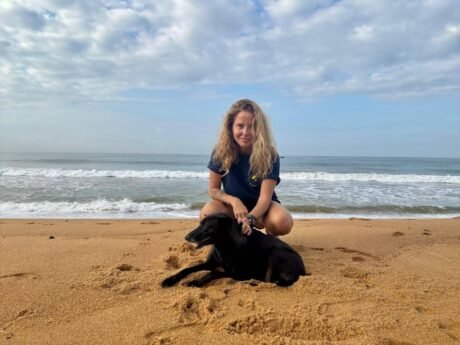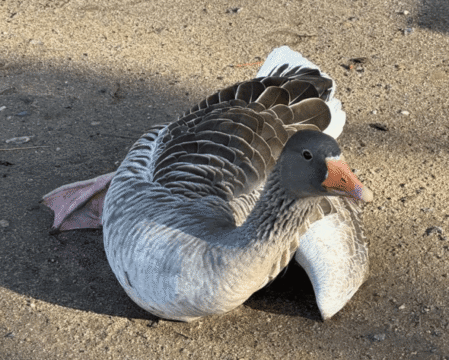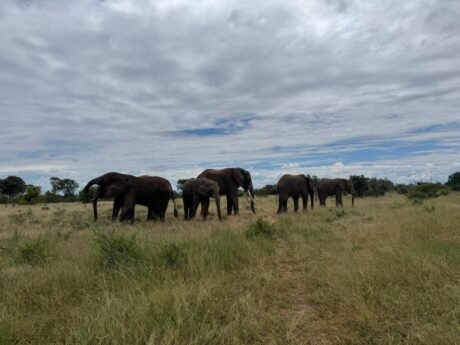The rehabilitation process can take months or even years, depending on the severity of the animal’s physical and psychological trauma. Once the animals are healthy and strong enough, they are often placed in sanctuaries or adopted into loving homes where they can live out their lives without fear of abuse or exploitation. Farm animal rescue plays an important role in raising awareness about the cruel and inhumane practices of industrial agriculture and promotes a more compassionate and sustainable food system. It also demonstrates the incredible resilience and capacity for healing of animals who have suffered at the hands of humans.
Wild At Life Project
Farm Animal Rescue
In partnership with Ruesselheim e.V.
Farm animal rescue is an essential and challenging task that involves the rescue and rehabilitation of animals from industrial farming operations or other situations of neglect and abuse. Many farm animals, such as cows, pigs, and chickens, are subjected to inhumane living conditions, including overcrowding, lack of veterinary care, and physical abuse. Animal rescue organizations such as ours, work tirelessly to provide these animals with medical attention, proper nutrition, and a safe and comfortable environment.
In 2018, we adopted five rescues moments before being slaughtered:
1) Kilis – a beautiful baby miniature pig
2) Afrin – handsome little Piedmontese ox
We have named them Kilis and Afrin, in memory of our Syrian War Rescue in 2017 where we saved 13 wild animals (lions, bears, hyenas and tigers) from an abandoned zoo in Aleppo, Syria, and brought them all the way to Turkey. Kilis is a border city in Turkey situated near the Syrian border, where we spent days under the sounds of bombs, finalizing our plans and preparation before entering Syria. And Afrin, a city near Aleppo, where we crossed with our rescued animals.
3) & 4) Chis and Dennis – two rabbits
5) Hakan – a lamb
With our German partner Russelheim e.V., we continue to rescue animals in need in Germany.
Thank you Russelheim e.V. for the lovely pictures!
Act now and help us save more farm animals
Please support Wild at Life e.V. so the vital projects can be successfully implemented.
Update: September 8, 2025
No Longer Trash: Giving Rescued Pigs a Second Chance
Wild at Life e.V. cares for dozens of rescued farm animals — especially pigs — who now live safely with our partner NGO, an organization that provides a home to hundreds of farm animals. Among them are many pigs we saved from truly horrible conditions. Huddled together in a filthy, cramped corner of a slaughterhouse, they were surrounded by piles of rotting waste. The pigs were in clear distress, bearing visible wounds and suffering from severe malnourishment and weakness. Treated like trash and abandoned to suffer in squalor, their situation was devastating. With rescue and care, they are finally safe and can begin to heal. Whenever we have the necessary funds, we extend our efforts to save even more animals from such dire situations, giving them the chance at a life free from suffering.
Pigs face various challenges, including factory farming conditions that prioritize efficiency over animal welfare. Many pigs are raised in crowded and unsanitary environments, lacking adequate space, social interaction, and proper care. This can lead to stress, disease, and injury. Additionally, practices like tail docking and teeth clipping are common, often without pain relief. Some farms also confine breeding sows to gestation crates, restricting their movement. These conditions have sparked debates about animal rights and welfare, with many advocating for more humane treatment and better living conditions for pigs.
Large-scale pig farming involves significant ethical issues like overcrowding, poor sanitation, and stress-related diseases, causing pigs to suffer without proper care or comfort. This industry also harms the environment by producing vast amounts of manure laden with nitrates and bacteria, which pollutes waterways and harms communities. Furthermore, pig production contributes to climate change through greenhouse gas emissions from the feed production, animal waste, and the animals themselves, with methane and nitrous oxide being potent gases that contribute to global warming.
Cruelty and Animal Welfare
Overcrowding and Lack of Enrichment:
Millions of pigs are raised in overcrowded, factory-like conditions that cause stress, fighting, and increased vulnerability to disease.
Poor Living Conditions:
Pigs often lack basic comfort, are exposed to feces and flies, and are kept in groups that lead to conflict and injuries.
Lack of Care:
There are instances of pigs being left to die from illness or injury without receiving proper attention.
Environmental Impact and Climate Change
Greenhouse Gas Emissions:
The production of pig feed, primarily corn and soybeans, along with animal waste, releases potent greenhouse gases like methane and nitrous oxide, which are more damaging to the climate than carbon dioxide.
Water Pollution:
The immense quantities of manure produced by pig farms often contain high levels of nitrates and bacteria. When stored in lagoons or spread on fields, these toxins can run off into rivers and streams, polluting water sources and contributing to eutrophication.
Air Quality:
Ammonia levels from pig manure can pose health risks to nearby communities, with some residents reporting asthma and other respiratory issues
For these reason Wild at Life has decided to tackle the issue and started negotiating welfare on the industry and comply with the SDG’s.
How You can Help
A wonderful way to support our work is through a symbolic adoption of one of our rescued pigs, “Lucky Tonizka.” Your adoption would help us provide food, medical care, and safety for him and the many others who rely on us. Every donation — big or small — also makes a huge difference in allowing us to continue rescuing animals from unbearable conditions and giving them the lives they deserve.
Update: October 8, 2024
Giving Lucky and Friends a Second Chance
A Fresh Start for the Mini Pigs
Four months ago, we rescued a group of mini pigs from appalling conditions. Lucky, along with Scarlett, Susi, Schorsch, Theodor, Peter, and Eddi, were found huddled together in a filthy, cramped corner of a slaughterhouse, surrounded by piles of rotting waste. They were malnourished, weak, and suffering from visible wounds. It was heartbreaking to see how they had been treated, abandoned and left to suffer.
Today, Lucky and the other pigs are thriving in a safe, loving environment with space to roam and proper care. Their wounds have healed, their strength has returned, and they are finally experiencing the kindness they deserve.
We’re also happy to share that Peter, Theodor, and Schorsch have been neutered and are doing well. Despite the heat, they handled the recovery beautifully, with the help of heat lamps at night for extra comfort. Now, they are all as healthy and happy as pigs can be! 🐽
If you’d like to help us continue giving these adorable creatures and others like them a safe home, please consider adopting Lucky Tonizka. Your support makes all the difference.
Update: May 30, 2024
Saved from Squalor: The Rescue of Nine Pigs from Neglect
We are pleased to share a positive update on the situation involving the pigs from the neglected slaughterhouse in Sachsen-Anhalt. Our team successfully rescued the nine surviving pigs, ensuring they received immediate veterinary care and a safe, nurturing environment.
The Progress

Here you can see under what conditions they had to live in for years! Huddled together in a filthy, cramped corner of the slaughterhouse, they were surrounded by piles of rotting waste. The pigs themselves were in distress, with visible wounds, and signs of severe malnourishment and weakness. It was clear they had been treated like trash, abandoned to suffer in squalor. It`s a devastating picture.
Our rescue operation highlights the importance of swift action and community support in animal welfare cases. The well-being of these pigs serves as a perfect exapmle to the impact that coordinated rescue efforts can have on animals in dire situations. We are grateful for the support and resources that made this rescue possible and are committed to ensuring these pigs continue to live healthy, happy lives.
Help us by Contributing!
If you would like to support our ongoing efforts to rescue and rehabilitate animals in need, please consider donating. Your contributions make a significant difference in the lives of animals like them.
This project is carried out in the following activity areas
Spread the news!
Help us increasing social commitment in saving endangered wild species. Express your support by sharing this article in your favorite social media channel.
Facebook
Twitter
LinkedIn
Pinterest
WhatsApp
Email
Most recent news
Project update
February 15, 2026
In Turkey, stray animals face unimaginable hardships every day—from scavenging for food to suffering from illness and injury. Many are victims of abuse, neglect, and cruel practices such as poisoning and mutilation. Recent government legislation allowing mass euthanasia of stray
News
January 25, 2026
City pigeons live a life few people truly see. Constant noise, traffic, hunger, cold, and danger are part of their everyday reality. Injuries are common, safe nesting places are rare, and survival often depends on luck rather than care. Yet
Project update
January 24, 2026
Snares are one of the biggest threats facing wildlife across Africa.Silent, cheap, and almost invisible, these wire traps are responsible for the suffering and death of millions of animals every year. Made from wire or steel cable, snares are easy
Project update
December 20, 2025
Every year, we travel to Sri Lanka to care for animals who would otherwise have no help. Our work focuses on stray dogs and cats living on the beaches and in nearby areas we are responsible for. We provide regular
News
December 13, 2025
We work with a local Frankfurt-based wildlife charity called Projekt Oase – Mensch und Tier im Einklang e.V., which focuses on protecting and rescuing wild waterfowl and other birds along the Main River. Projekt Oase is a small but passionate
Project update
December 5, 2025
At our sanctuary in Zambia, the team of Wild at Life e.V. has wonderful news to share. Our nine rescued elephants — all survivors of drought or poaching — are thriving, and they continue to enjoy their days in complete



